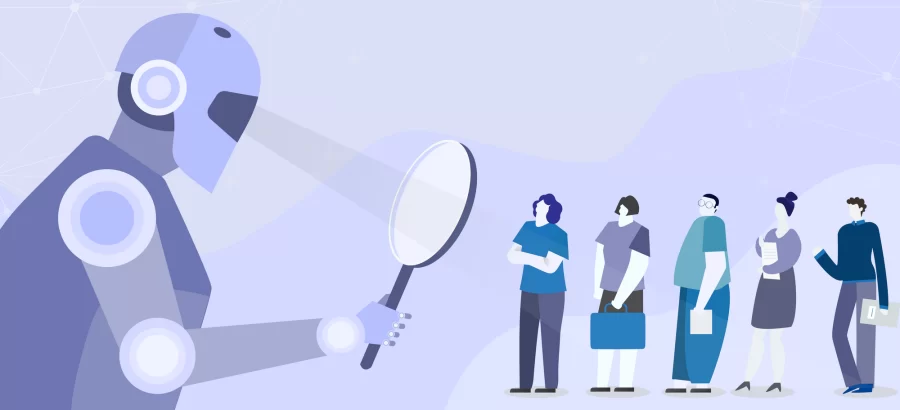AI is both a threat and a gift
Depending on how it is used, Artificial Intellingence can make the world a better place, or seriously mess things up.
The term artificial intelligence, or AI, has gained popularity in the world today. It has changed a number of industries and simplified our lives in several ways. But, there are also worries about how AI will affect our future as its use grows.
While it’s true that AI has the potential to significantly transform our lives, and although there are obvious advantages to this technology, there are also enormous disadvantages. The potential risks of AI are significant and complex, ranging from job loss to privacy issues, to bias and discrimination.
Job Loss
The eventual loss of jobs is one of AI’s biggest threats to our future. There is a chance that many jobs will become automated since AI systems can complete numerous activities faster and more accurately than humans. In a survey of 3,000 business leaders conducted by IBM, 120 million workers in the world’s 12 largest economies may need to be retrained or reskilled in the next three years due to AI and intelligent automation. Nevertheless, low-skilled professions are not the only ones at risk.
AI is capable of carrying out activities that were previously thought to be the domain of highly qualified experts like radiologists and lawyers. The skills of workers may no longer be in demand in the job market when vast numbers of people are replaced by automation. This can result in long-term economic and societal problems like poverty, crime, and political instability. Up to 800 million jobs may be lost to automation by 2030, according to a McKinsey study. Employment losses would likely be targeted at specific sectors and industries, such as manufacturing, retail, and the food service industry.
To tackle this, we must execute an extensive strategy that involves investing in new businesses and developing economic opportunities in areas that can be negatively impacted by the danger that AI brings to jobs.
Privacy loss
Imagine going down the street and suddenly noticing a billboard displaying an advertisement targeted just to you. What would you think? Due to the fast development of AI technologies and the massive collection of personal data on people, this may soon become a reality. We are seriously threatened by the potential loss of privacy, which is a danger to our independence and freedom. Our activities and habits may be recorded and tracked without our knowledge or agreement as facial recognition technology becomes more widely used. Our capacity to travel freely and privately in public places may be seriously impacted by this.
However, despite being positive for advances in medicine, the use of artificial intelligence in healthcare causes concerns about the potential misuse of personal medical information. As we advance with the creation and application of AI technology, it is important that we take steps to protect individual autonomy and privacy. Failing to do so could have negative impacts on our capacity to enjoy our own rights and live without worrying about being constantly watched and collected data.
For example, a 2019 study by the University of Cambridge found that facial recognition technology can accurately identify individuals from pictures posted on social media with up to 80% accuracy. This means that even if individuals have not consented to their data being used, their identities can still be inferred from publicly available data.
Bias and discrimination
AI systems are occasionally biased since they are only as good as the data on which they are trained. That means that if the data is misleading, the AI may be affected as well. This has major consequences for those who are already oppressed or discriminated against, such as people of color. Facial recognition software, for example, has been demonstrated to be less reliable when detecting people with darker skin tones.
This might cause issues in areas such as hiring and criminal justice, as AI may end up making biased judgments based on color or ethnicity. There is also a potential that AI will be purposefully built to discriminate against specific groups, which could be extremely dangerous, particularly in countries where there is no freedom and individuals have little say in how AI is employed.
This is an urgent issue because AI systems are increasingly being used in important decision-making situations such as criminal justice and healthcare. AI that is inaccurate or biased can have severe implications for individuals and communities, extending and even amplifying existing inequalities.
For example, a judge in Colombia used ChatGPT to make a court verdict, which appears to be the first time a judicial decision has been reached with the assistance of an AI text generator—or, at the very least, the first time we are aware of it. Although Colombian law does not prohibit the use of AI in court rulings, systems like as ChatGPT are notorious for providing responses that are biased, discriminating, or simply incorrect.
When used ethically and responsibly, AI has the potential to revolutionize industries, improve quality of life, and help solve some of the world’s most pressing problems. This demonstrates how far we’ve come in the realm of artificial intelligence, and how much potential these technologies have to revolutionize our lives.
But even as I marvel at the abilities of AI, I’m reminded of the risks and challenges that come with these technologies. It’s up to all of us to ensure that AI is developed and used in a way that prioritizes human values and interests, and that we work to address the risks posed by issues like job loss, privacy loss, and bias.
As we continue to explore the potential of AI and push the boundaries of what’s possible. And who knows, maybe one day soon, we’ll even have AI systems that can write articles like this one entirely on their own. But until then, let’s work together to create a future that’s powered by AI, but guided by human values and ethics.




